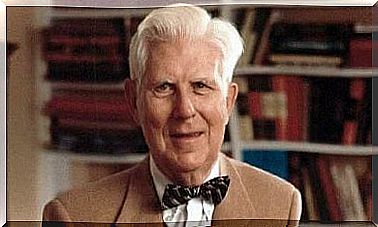Sport Addiction: What Consequences?

Tennis, running, football, basketball, rowing, gymnastics, athletics, surfing, horse racing… there are so many sports that it is impossible not to find one you like. Physical activity brings a great deal of benefits to the body and mind, but beware! There are factors, circumstances and situations that can transform wanting into duty. We end up developing an addiction to sports, which we play out of obligation and not to enjoy the time we dedicate to it. Forcing ourselves to exercise is neither rewarding nor advisable. In the long run, this behavior can lead to developing a real sports addiction.
Generally when we are moved by duty or necessity, the intrinsic motivation, present at the beginning and offered to us by the activity itself, vanishes. For this reason, unless a specialist recommends it for the sake of your health, forcing yourself to exercise is neither rewarding nor advisable. In the long run this conduct can lead to developing a real addiction to sports .
Sports addiction and consequences
Obsession with sport
Exercising two or three times a week offers numerous emotional, psychological and physical benefits. On the one hand, it helps to make us unplug from burdens or sources of worry, making us stronger in the face of possible stress peaks. It is also a natural antioxidant: it slows down premature aging and improves our emotional stability.

The problem arises when we abuse something healthy by making it dangerous. If sport becomes an obsession, it can be the cause of serious psychological disorders, such as vigorexia or dysmorphophobia and others related to eating behavior, such as bulimia or anorexia nervosa. It can also cause anxiety which, over time, turns into deep depression or perpetual melancholy.
Masking other problems
One of the main reasons that drives us to play sports is to see ourselves more beautiful in the mirror. Exercise helps those who are overweight to burn body fat and those who are fit to maintain well-defined muscles.
In any case, we must pay attention to the signals sent to us by the body. If on the day when it is not possible for us to do physical activity, due to lack of time, energy or desire, we feel bad, in addition to suffering from withdrawal syndrome, our mind is not in harmony. When we depend on something to feel good, two things happen: either that something is not really offering us what we want or it is masking another factor.
For example, it is common for us to force ourselves to play sports because we believe it represents an outlet. Nothing could be further from reality: our conflicts are still present after physical activity and regardless of the number of hours we have dedicated to it. We cannot solve them by avoiding them, running away or taking refuge in other activities. This is why if one day we don’t play sports, the anxiety we try to disguise rises to the surface.
Mood swings
Sport is great for naturally producing endorphins. These opioid peptides relieve pain and generate a feeling of intense well-being. Sport therefore helps us to maintain a good mood, reduce sadness and strengthen the immune system.
However, when we suffer from this strong feeling of addiction, we notice short temper, irritability, nervousness and anxiety. A paradox occurs: sport practiced assiduously makes us happy, but from a certain point onwards it is suffering that takes on the leading role.
Change priorities
Normally people who spend many hours of their day in the gym do so by taking time away from other interests, friends and activities. Those who are obsessed with physical activity often see their social circle shrinking. At the same time, the obsession with nutrition develops.
The occasions when he goes out for lunch or dinner with friends are drastically reduced . The person does not allow himself the opportunity to let himself go even for a day, because otherwise he has the feeling of frustrating all the sacrifices made. The addiction to sports immerses her in a routine that ends up incarcerating her.

Sports and children
It is highly recommended to accustom the little ones to carry out recreational activities related to sport. Thanks to them, they improve their social and motor skills and dexterities, as well as enrich their repertoire of values and autonomous behaviors. In this sense, enrolling your children in extracurricular activities can increase their sensory and polymodal stimulation, contributing to a more complete and integral development.
However, if the physical activity they do does not satisfy them, little by little it will turn into an emotional burden that will undoubtedly end up having negative consequences in other areas of their life.
We tend to often think that all children like football and, therefore, that on weekends they have to play games with their teammates. Before deciding for your children, however, it is better to observe them : skills, visual-motor coordination, interests … and let them express how they feel when they play as a team and, in particular, if they are happy doing the sport in question.
Remember that doing sport is positive and very healthy, and you can also choose between individual or team activities. The important thing, however, is that it does not take control of our life and that it does not define our social relationships, but rather that it represents an additional tool to achieve daily happiness.









